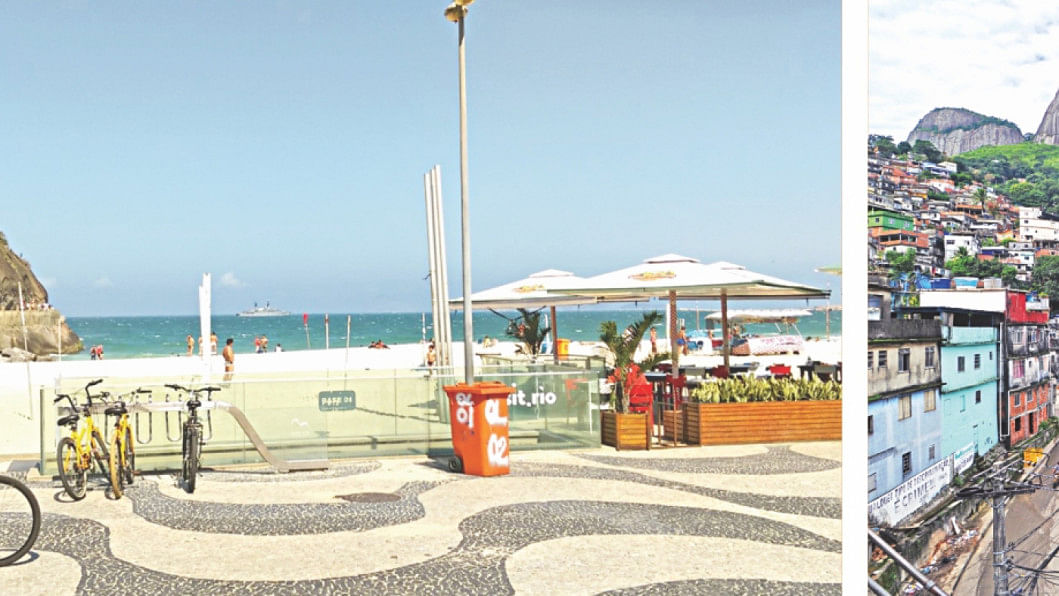In the land of the great divide

The nightscape of Rio de Janeiro is quite brilliant. From up above at night-time, this sprawling city of close to 500 square miles resembles a dense constellation of stars. Myriad concrete structures by the side of the fluorescent streetlights make it a sumptuous view from the window seat of an airplane. As the earth gets closer though, and the focus is sharpened, some of that shine wears off. Reality dawns with a check.
There is opulence in abundance here as there is inequality. The city, like most places in Brazil, struggles to reconcile its colonial past with a first-world ambition and its third-world realities.
The first-world life is most prevalent in places like the Ipenama and Copacabana neighbourhoods. The sun breaks in all its glory on the Copacabana. The warm and sunny climes lure people for a day out in the sun or a dive or two into the Atlantic. The children take their bikes out to the streets; the old ones take their dogs out for a lazy stroll and the young ones tan themselves in the sun. Every day here is like Sunday.
But if you move away from these posh neighbourhoods and venture towards the outskirts of the city, you will notice that not everything is so Hollywood. Those are the less fancier parts of the city where the middle class somehow lives and survives.
If you venture further to have a peep into the slopes of the hills, you would see what the shiny brochures never tell you about. These are the 'favelas' or the slums, where everything seems desperate. These are the dark spots of this colourful city which are kept away neatly from the inquisitive eyes of its guests.
With these inequalities and a host of controversies in the backdrop, the seaside city is about to host South America's first Olympic Games from tomorrow. Famous for its bountiful beaches and a blazing sun, Rio is bracing itself for a congregation of sports stars from all over the world.
Brazil was just entering a recession when Rio had won its bid in 2007, beating cities like Tokyo, Chicago and Madrid. Having already won the rights to host the 2014 FIFA World Cup, the whole country was in a state of euphoria as it felt the two mega sporting events would help get the economy back on track while at the same time stamp the country's image as the leading South American sporting nation.
Seven years down the line, however, the sentiment is not quite the same. There has been a lot of taxpayer money put into getting the infrastructure ready at the expense of key sectors such as healthcare. While the investment in infrastructure and transport will definitely benefit some, a large section of the people remain unconvinced about the long-term impact of the Games. They see the rising inflation and higher tax rates as ailments that they believe have at least corresponded to, if not been ushered in by, the two events. Hence there is a sense of uneasiness regarding the legacy of the Games -- whether it will lift them out of the gloom or confine them deeper into the misery.

 For all latest news, follow The Daily Star's Google News channel.
For all latest news, follow The Daily Star's Google News channel. 



Comments